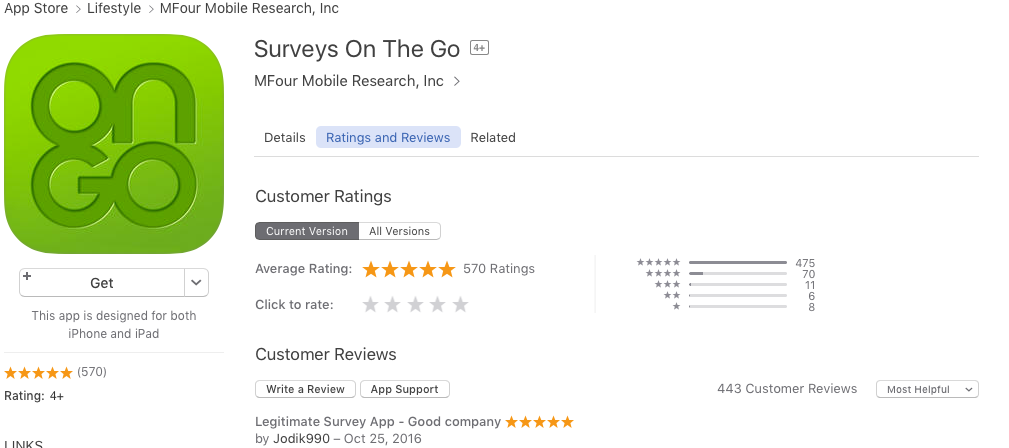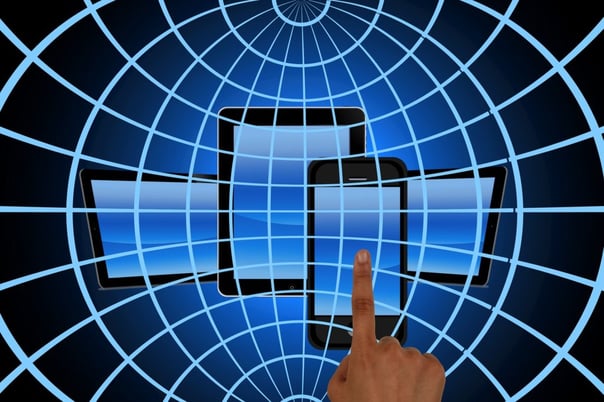
As the market research industry tries to get its collective head around mobile research, nobody has a better sense of what it’s going through than MFour’s Solutions team. And there’s nobody better qualified to help.
These are experts who educate clients and prospective clients about what advanced mobile research can achieve (by “clients and prospective clients,” we mean anyone who has a professional stake in obtaining consumer data that will generate insights into how today’s smartphone-loving public thinks and acts when it comes to shopping and buying).
The solutions staff’s job is to show researchers how MFour’s wide-ranging products and services can be individualized to tackle each research challenge that needs a solution.
Sometimes, our reps have to help MR professionals unlearn what they know about generic “mobile” before they can take the necessary next step of learning about the benefits of advanced, state-of-the-art mobile. They ain’t the same animal.
Andreas Hoelting, an MFour Solutions Development Representative, recently had an illuminating exchange with a prospective client who we’ll call Stan.
After several emails went unreturned, Andreas managed to make contact. Stan said he had read one of them, but let the chance to learn more about mobile research pass because he already “knew” that mobile surveys “have to be kept short” – and that wasn’t going to help him with the complex studies he needed to field.
That’s hardly surprising: “mobile = short” has become the conventional wisdom. Here’s one example published in the November, 2015 edition of Quirk’s Marketing Research Review:
“Participants completing mobile research have, on average, a significantly shorter attention span than those using desktop devices….. a long survey delivered on mobile will suffer high dropout rates due to a lack of engagement, but the same survey delivered on a desktop offers space for detailed, reflective feedback.”
Stan clearly had read this or something like it, or had absorbed the idea of “mobile = short” in conversations with fellow MR pros who’d received the same impression, either from reading, from conference presentations, or from direct experience with what they thought was a mobile study.
Andreas was able to explain that Stan had it exactly right – the kind of mobile research he’d heard about does need to be kept short. But it’s not the kind of mobile you should buy. We think of it as “quick fix” mobile – designed as a jerry-rigged, technologically lethargic attempted fix for the escalating failure of online surveys to reach a public that increasingly and overwhelmingly has embraced smartphones.
The quick fix mobile response is to cram a traditional survey designed to be taken on a laptop or desktop computer onto a smartphone screen, then hope that whoever tries to respond will put up with the messy user experience long enough to answer a few questions. With a quick-fix mobile approach, five minutes, tops, seems about right.
Others claim they’ve raised the bar by achieving “mobile optimization.” It may look better on the screen, but there’s nothing optimal about it. Panelists still have to open and click on an email invitation – which competes with the zillion other messages stuffed into their inboxes, most of them unwanted. Those who do click are connected to a website where the survey is housed.
Then the survey begins. Technologically, it’s an inelegant and inefficient game of ping pong, with the website sending a question and the respondent sending back an answer. Each exchange is a separate, back-and-forth transaction that has to be repeated over and over until the survey is done.
The trouble is that if the panelist’s internet connection becomes slow or the signal drops out – and who hasn’t been through that? – the process will collapse. The researcher ends up not only losing a complete, but loses the ongoing help of the respondent – who will take out his or her frustration by sending the next email survey invitation straight to trash.
Does this sound "optimized" to you?
Andreas quickly explained all this (thankfully, it’s easier to talk a client through it than put it in writing, so thanks for bearing with your faithful blogger). And then he said the magic words: “native app.”
Stan hadn’t heard the term, but by now he was curious to see where Andreas was going with this explanation of how “all mobile is not created equal” and “not all mobile surveys need to be short.”
Long story short: Andreas walked Stan through how MFour’s surveys are conducted.
- They take place inside a proprietary app – Surveys on the Go® – that more than a million engaged active panelists have downloaded to their smartphones.
- Those burdensome email notifications are cut out of the equation.
- Instead, panelists welcome push notifications telling them of a survey opportunity.
- Welcome, because, after all, they’ve downloaded the app and know how it works (Andreas mentioned SOTG’s unsolicited rating of five stars at the Apple Store and more than four out of five at Google Play -- both the highest ratings for a survey app).
- No internet connection needed – “native” means the app instantly embeds the entire survey into the phone.
- The panelist can answer offline, at his or her convenience.
- The result is a completion rate of more than 90% for surveys with LOI of 20 minutes or more, with a drop-off of just 6.5%.
What makes state-of-the-art mobile so well-suited to long game studies and not just to quick-hit surveys? Like all smartphone users, research panelists expect smooth functionality on their devices, and will stay engaged when they get it. But they'll discard any app that fails to deliver, as surely as they'll keep tapping on those that provide rewarding experiences.
Again, Andreas explained all this quickly, and Stan quickly got it. The conversation could now turn to Stan’s specific research needs, which had to do with in-store product and packaging evaluations – tasks for which app-based research is ideally suited because of the phones’ photo and multimedia capabilities.
If you’re like Stan and have only heard about short-LOI/short attention span mobile, we envy you – you’re about to learn some cool stuff about advanced, app-based, state-of-the-art mobile that solves problems and makes your professional life better. Andreas and his Solutions colleagues can tell you all about it.
To reach one of them, just click here.















